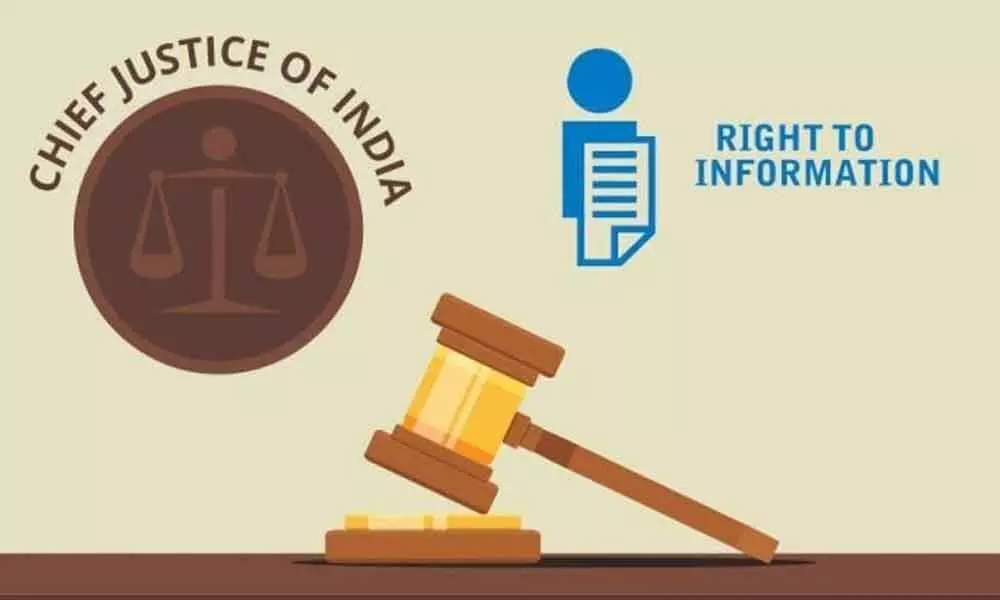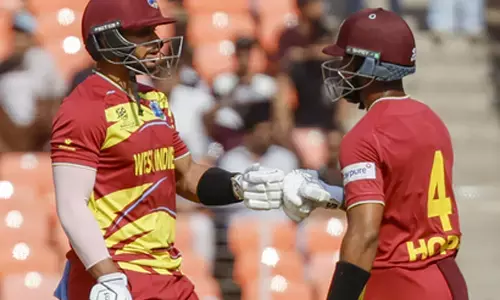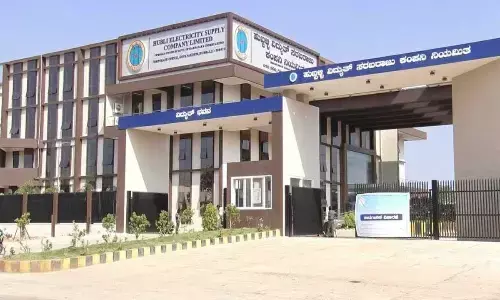Chief Justice of Indiacomes under RTI ambit

The Supreme Court on Wednesday held that the office of the Chief Justice of India is a public authority and falls within the ambit of the Right to Information Act.
New Delhi: The Supreme Court on Wednesday held that the office of the Chief Justice of India is a public authority and falls within the ambit of the Right to Information Act.
A five-judge Constitution bench, headed by Chief Justice Ranjan Gogoi, upheld the 2010 Delhi High Court verdict and dismissed three appeals filed by secretary general of the Supreme Court and the Central Public Information officer of the apex court.
Cautioning that RTI cannot be used as a tool of surveillance, the top court in its judgment held that judicial independence has to be kept in mind while dealing with transparency.
The bench, also comprising Justices NV Ramana, DY Chandrachud, Deepak Gupta and Sanjiv Khanna, said that only the names of judges recommended by the Collegium for appointment can be disclosed, not the reasons.
While the CJI and Justices Deepak Gupta and Sanjiv Khanna have penned one judgement, Justices Ramana and Chandrachud have written separate verdicts. It said that the Right to Privacy is an important aspect and it has to be balanced with transparency while deciding to give out information from the office of the Chief Justice.
Justice Chandrachud, who wrote a separate judgment, said the judiciary cannot function in total insulation as Judges enjoy constitutional post and discharge public duty. Justice Sanjiv Khanna said independence of judiciary and transparency go hand in hand.
Justice Ramana, who concurred with Justice Khanna, said there should be balancing formula for Right to Privacy and Right to transparency and independence of judiciary should be protected from breach.
The High Court on January 10, 2010 had held that the CJI office comes within the ambit of the RTI law, saying judicial independence was not a judge's privilege, but a responsibility cast upon him.
The 88-page judgement was a personal setback to the then CJI, K G Balakrishnan, who has been opposed to disclosure ofinformation relating to judges under the RTI Act. The High Court verdict was delivered by a three-judge bench comprising Chief Justice AP Shah (since retired) and Justices Vikramjit Sen and S Muralidhar.
The bench had dismissed a plea of the Supreme Court that contended bringing the CJI's office within the RTI Act would "hamper" judicial independence. Justice Sen retired as the judge of the apex court, while Justice Muralidhar is a sitting judge of the High Court.
The move to bring the office of the CJI under the transparency law was initiated by RTI activist S C Agrawal. His lawyer Prashant Bhushan had submitted in the top court that though the apex court should not have been judging its own cause, it is hearing the appeals due to "doctrine of necessity".
The lawyer had described the reluctance of the judiciary in parting information under the Right To Information Act as "unfortunate" and "disturbing", asking: "Do judges inhabit different universe?"
He had submitted that the apex court has always stood for transparency in functioning of other organs of State, but it develops cold feet when its own issues require attention. Referring to the RTI provisions, Bhushan had said they also deal with exemptions and information that cannot be given to applicants, but the public interest should always "outweigh" personal interests if the person concerned is holding or about to hold a public office.
Dealing with "judicial independence", he said the National Judicial Accountability Commission Act was struck down for protecting the judiciary against interference from the executive, but this did not mean that judiciary is free from "public scrutiny".










